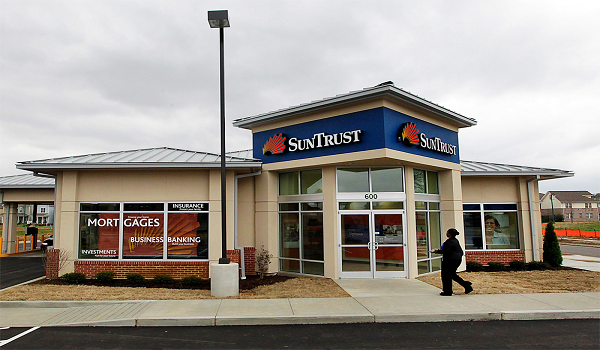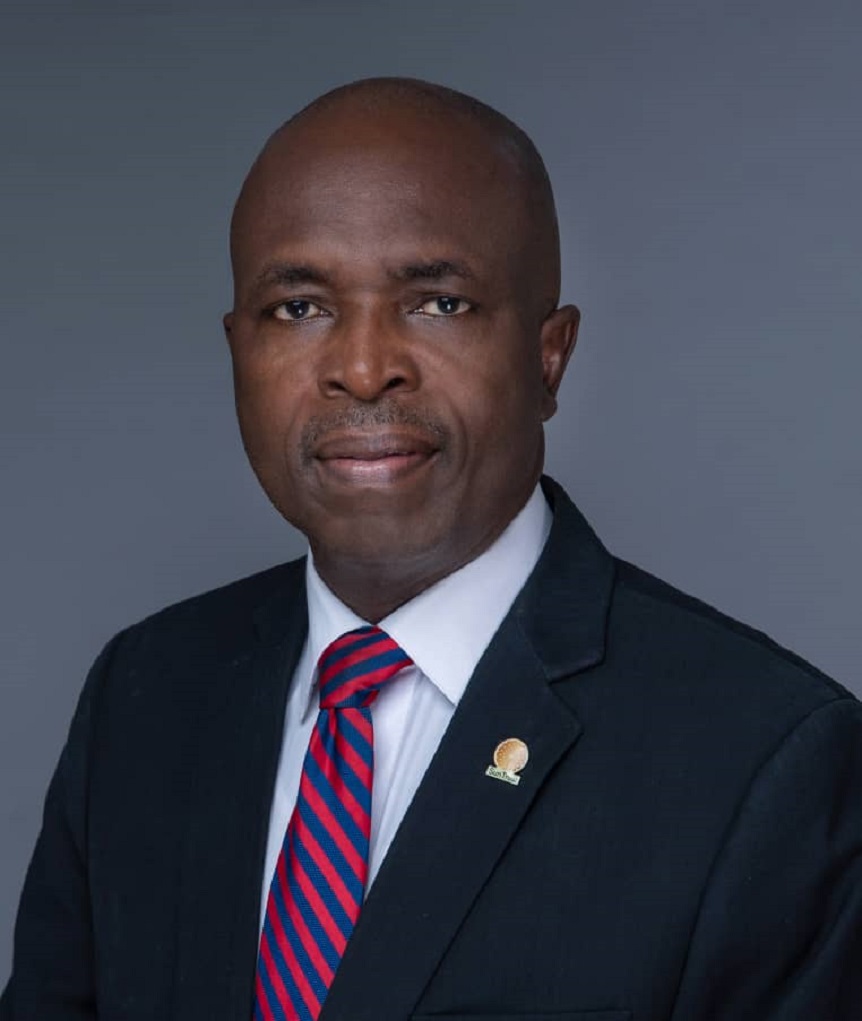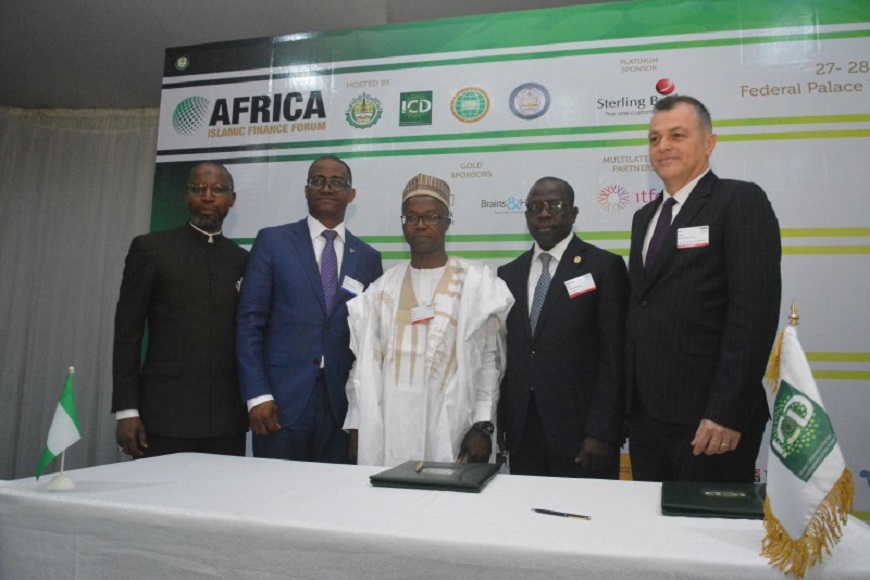Banking
SunTrust Bank Stands Tall with Impressive 2016 Performance


By Modupe Gbadeyanka
SunTrust Bank Nigeria Limited has released its financial performance for the year ended December 31, 2016 and the results have sent a clear message of determination to succeed and deliver value to all stakeholders.
SunTrust Bank began commercial banking activities last year with the vision to “offer high quality retail and commercial banking services in a modern and innovative manner.”
“We will use technology and a new way of thinking to provide banking services to many people and businesses in Nigeria for whom access to a bank account has previously been impossible.
“We will offer telephone, mobile and Internet banking underpinned by the traditional banking ethics of probity and integrity,” the Managing Director/Chief Executive Officer of the bank, Mr Muhammed Jubrin declared.
And going by the results of the bank for 2016, the future is very bright for all stakeholders. The bank grew its bottom-line by 160.2 per cent as profit before tax (PBT) rose from N131.9 million to N343.34 million in 2016.
In all, the bank recorded net interest income of N935.892 million in 2016, up from N220 million in 2015, while net fee and commission income improved from N65.389 million to N92.378 million in 2016.
SunTrust Bank ended the year with a profit after tax (PAT) growth to 74.57 per cent from N121.844 million in 2015 to N212.707 million in 2016.
Consistent with its conservative risk profile, the bank maintained its strong liquidity position, with cash and short-term funds accounting for 32 percent of its total assets.
The bank recorded a rapid growth in deposits by an impressive 425 percent in four months, a clear demonstration of the success of its business strategy.
Deposits from customers rose to N4.195 billion from a record N788.583million in 2015. The bank’s PBT and PAT margin improved from 9.2 per cent and 8.4 per cent in 2015 to 26.9 per cent and 16.7 per cent in 2016 respectively.
SunTrust Bank is the first fresh banking licence to be issued by the Central Bank of Nigeria (CBN) since 2001.
According to Mr Jibrin, SunTrust Bank started about seven years ago as a mortgage bank, noting that board and management were able to grow its balance to a reasonable size before they decided to pursue a commercial banking licence from the CBN which they got in September of 2015.
He said the bank would be a financial technology institution that would focus electronic channels by offering telephone, mobile and internet banking services.
“Banking is no longer where you go, it is what people do. Therefore, the only thing that can stand the future is no longer physical branches, but banking services that would be driven by technology. So, most customers of tomorrow would no longer be the customers that they want to go to the banking hall.
“So, you need to be able to position the institution to respond positively to the needs and expectations of customers of tomorrow. That is at the heart of our own vision and strategy as tomorrow’s bank today,” Mr Jibrin said.
The Chairman of the bank, Mr Charles Onyema Ugboko, had said that establishing a bank amid the present economic situation showed that the board and management are committed to the growth of the Nigerian economy.
SunTrust Bank operates the branchless banking model where it will deliver financial services outside conventional bank branches. According to the bank, it hopes to eliminate the need for costly brick-and-mortar branches and use agent networks to reach its customers more efficiently.
The bank’s competitive edge will be the strong reliance on technology and the bank will be encouraging customers to access its services from the comfort of their homes and offices and as such the bank will not be engaging in a proliferation of branches.
“Our services will be available to our customers 24 hours daily, seven days a week and from anywhere in the world where there is a good Internet service.
“Even our data centre is outsourced, this way we will not have the overbearing requirement to put on the generator at our locations,” Mr Jubrin said.
He explained that SunTrust Bank customers will be encouraged to use any bank ATM because the bank will not be charging them the fee charged by other banks for using ATM machines belonging to other banks.
“We will not be emphasising physical security as we are making serious investment in cyber security instead.”
“In the years to come, the developments at SunTrust should have far-reaching influence in the banking sector specifically and our nation generally,” the CEO said.
Banking
Public Offer: Sterling Holdco Allots 13.812 billion Shares to 18,276 Shareholders

By Aduragbemi Omiyale
Sterling Financial Holdings Company Plc has allotted shares from its public offer of 2025 to investors with valid applications.
The allotment follows the earlier receipt of final approval from the Central Bank of Nigeria (CBN) and the recent clearance by the Securities and Exchange Commission (SEC).
In September 2025, the financial institution offered for sale about 12,581,000,000 ordinary shares of 50 kobo each at N7.00 per share in public offer.
However, the exercise received wide participation from the investing public, with the company getting 18,280 applications for 16,839,524,401 ordinary shares valued at approximately N117.88 billion.
Following a thorough verification process, valid applications were received from 18,276 shareholders for a total of 13,812,239,000 ordinary shares, representing a subscription level of 109.79 per cent and reflecting sustained confidence in Sterling Holdco’s strategic direction, governance, and long-term growth prospects.
The firm approached the capital market for additional funds for the recapitalisation of its two flagship subsidiaries, Sterling Bank and The Alternative Bank.
The capital injection will support the commencement of full operations and contribute to the group’s revenue diversification objectives.
In line with the guidelines set out in the offer prospectus, Sterling Holdco confirmed that all valid applications will be allotted in full. Every investor who complied with the terms of the offer will receive all the shares for which they applied.
A very small number of applications were not processed or were partially rejected due to non-compliance with the offer terms, including duplicate payments and failure to meet the minimum subscription requirement of 1,000 units or its multiples, as stipulated in the offer documents.
The group ensures a seamless post-offer process, with refunds for excess or rejected applications, along with applicable interest, to be remitted via Real Time Gross Settlement or NIBSS Electronic Funds Transfer directly to the bank accounts detailed in the application forms.
Simultaneously, the electronic allotment of shares has be credited to successful shareholders’ accounts with the Central Securities Clearing System (CSCS) on February 17, and for applicants who do not currently have CSCS accounts, their allotted shares will be temporarily held in a registrar-managed pool account pending the submission of their completed account opening documentation to Pace Registrars Limited, after which the shares will be transferred to their personal CSCS accounts.
Banking
CBN Governor Seeks Coordinated Digital Payment Reforms

By Modupe Gbadeyanka
To drive inclusive growth, strengthen financial stability, and deepen global financial integration across developing economies, there must be coordinated reforms in digital cross-border payments.
This was the submission of the Governor of the Central Bank of Nigeria (CBN), Mr Olayemi Cardoso, at the G‑24 Technical Group Meetings in Abuja on Thursday, February 19, 2026.
According to him, high remittance costs, settlement delays, fragmented systems, and heavy compliance burdens still limit the participation of households and Micro, Small and Medium Enterprises (MSMEs) in global trade.
The central banker emphasised that efficient payment systems are essential for economic inclusion, highlighting that global remittance corridors still incur average costs above 6 per cent, with settlement delays of several days, excluding millions from modern economic activity.
Mr Cardoso cautioned that while digital payments present significant opportunities, they also carry risks such as currency substitution, weakened monetary transmission, increased FX volatility, capital-flow pressures, and regulatory fragmentation.
The G-24 TGM 2026, themed Mobilising finance for sustainable, inclusive, and job-rich transformation, convened global financial stakeholders to advance the modernisation of finance in support of emerging and developing economies.
The CBN chief reaffirmed Nigeria’s commitment to working with G-24 members, the IMF, the World Bank Group, and other partners to build a more inclusive, resilient, and development-oriented global financial architecture.
“We have strengthened our AML/CFT frameworks in line with FATF guidelines, requiring strict dual-screening of cross-border transactions to mitigate risks.
“To deepen regional integration, the CBN introduced simplified KYC/AML requirements for low-value cross-border transactions to encourage broader participation in PAPSS, easing processes for Nigerian SMEs and enabling faster intra-African trade payments.
“We have also embraced fintech innovation through our Regulatory Sandbox, allowing payment-focused fintechs to test secure, instant cross-border solutions under close CBN supervision,” he disclosed.

Banking
Unity Bank, Providus Bank Merger Awaits Final Court Approval

By Modupe Gbadeyanka
The merger and business combination between Unity Bank Plc and Providus Bank Limited remains firmly on course, a statement from one of the parties disclosed.
According to Unity Bank, there is no iota of truth in reports in certain sections of the media suggesting that the merger process had stalled, as the transaction remains firmly on track.
It was disclosed that the necessary regulatory steps have been completed, but only a few other steps to finalise the transaction, especially the final court sanction.
There had been speculations that both lenders may not meet the new minimum capital requirement of the Central Bank of Nigeria (CBN) before the March 31, 2026, deadline.
However, it was noted that the combined capital base of Unity Bank and Providus Bank exceeds N200 billion, which is the minimum requirement to retain a national banking licence under the CBN’s recapitalisation framework.
When completed, the Unity-Providus merger is expected to deliver a stronger, more competitive, and customer-centric financial institution — one with the scale, innovation, and reach to redefine the retail and SME banking landscape in Nigeria.
“The merger with Providus Bank significantly enhances our capital base, operational capacity, and strategic positioning.
“We are confident that the combined institution will be better equipped to support economic growth and deliver innovative financial solutions across Nigeria,” the chief executive of Unity Bank, Mr Ebenezer Kolawole, stated.
Recall that a few months ago, shareholders authorised the merger between the two entities at Court-Ordered Meetings. They also adopted the scheme of merger at their respective Extraordinary General Meetings (EGMs) in September 2025,
The central bank also backed the merger, with a pivotal financial accommodation to support the transaction. The merger also received a further boost with a “no objection” nod from the Securities and Exchange Commission (SEC).
The regulatory approvals form part of broader efforts to strengthen the resilience of Nigeria’s banking system, reinforce capital adequacy across the sector, and mitigate potential systemic risks.
The development positions the combined entity among the 21 banks that have satisfied the apex bank’s new capital threshold for national banking operations.
-

 Feature/OPED6 years ago
Feature/OPED6 years agoDavos was Different this year
-
Travel/Tourism10 years ago
Lagos Seals Western Lodge Hotel In Ikorodu
-

 Showbiz3 years ago
Showbiz3 years agoEstranged Lover Releases Videos of Empress Njamah Bathing
-

 Banking8 years ago
Banking8 years agoSort Codes of GTBank Branches in Nigeria
-

 Economy3 years ago
Economy3 years agoSubsidy Removal: CNG at N130 Per Litre Cheaper Than Petrol—IPMAN
-

 Banking3 years ago
Banking3 years agoSort Codes of UBA Branches in Nigeria
-

 Banking3 years ago
Banking3 years agoFirst Bank Announces Planned Downtime
-

 Sports3 years ago
Sports3 years agoHighest Paid Nigerian Footballer – How Much Do Nigerian Footballers Earn

















